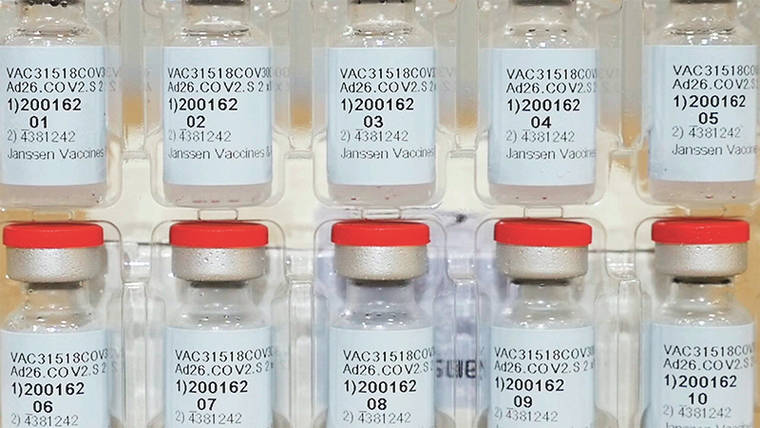WASHINGTON — The U.S. is getting a third vaccine to prevent COVID-19, as the Food and Drug Administration on Saturday cleared a Johnson &Johnson shot that works with just one dose instead of two.
Health experts are anxiously awaiting a one-and-done option to help speed vaccinations, as they race against a virus that already has killed more than 510,000 people in the U.S. and is mutating in increasingly worrisome ways.
The FDA said J&J’s vaccine offers strong protection against what matters most: serious illness, hospitalizations and death. One dose was 85% protective against the most severe COVID-19 illness, in a massive study that spanned three continents — protection that remained strong even in countries such as South Africa, where the variants of most concern are spreading.
“This is really good news,” Dr. Francis Collins, director of the National Institutes of Health, told The Associated Press Saturday. “The most important thing we can do right now is to get as many shots in as many arms as we can.”
J&J initially is providing a few million doses and shipments to states could begin as early as Monday.
By the end of March, J&J has said it expects to deliver 20 million doses to the U.S., and 100 million by summer.
J&J also is seeking authorization for emergency use of its vaccine in Europe and from the World Health Organization.
The company aims to produce about 1 billion doses globally by the end of the year.
On Thursday, the island nation of Bahrain became the first to clear its use.
“This is exciting news for all Americans, and an encouraging development in our efforts to bring an end to the crisis,” President Joe Biden said in a statement. “But I want to be clear: this fight is far from over,” he added, encouraging people to stick with masks and other public health measures.
Today, a U.S. advisory committee will meet to recommend how to prioritize use of the single-dose vaccine. And one big challenge is what the public wants to know: Which kind is better?
“In this environment, whatever you can get — get,” said Dr. Arnold Monto of the University of Michigan, who chaired an FDA advisory panel that unanimously voted Friday that the vaccine’s benefits outweigh its risks.
Data is mixed on how well all the vaccines being used around the world work, prompting reports in some countries of people refusing one kind to wait for another.
In the U.S., the two-dose Pfizer and Moderna shots were 95% protective against symptomatic COVID-19.
J&J’s one-dose effectiveness of 85% against severe COVID-19 dropped to 66% when moderate cases were rolled in.
But there’s no apples-to-apples comparison because of differences in when and where each company conducted its studies, with the Pfizer and Moderna research finished before concerning variants began spreading.
NIH’s Collins said the evidence shows no reason to favor one vaccine over another.
“What people I think are mostly interested in is, is it going to keep me from getting really sick?” Collins said. “Will it keep me from dying from this terrible disease? The good news is all of these say yes to that.”



